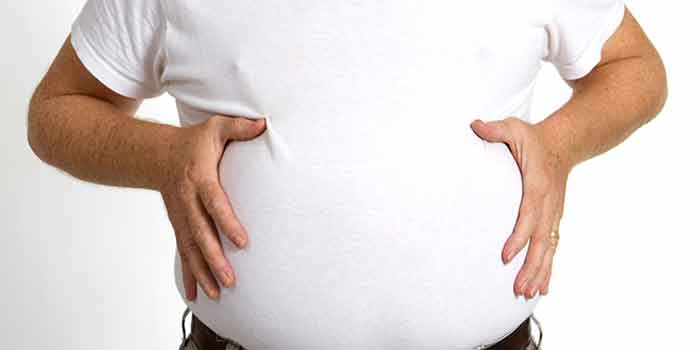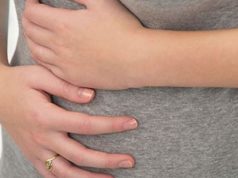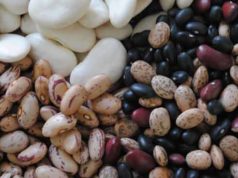How does coffee make you bloated.How is caffeine linked to bloating and other stomach problems? Despite the fact that it is one of the most popular drink on the planet, there are chances that it may make you full…read on to find out more
Coffee and Bloating -How does Coffee make you Bloated?
Bloating is a condition that makes your stomach feel full, tight and larger.
According to Dr. Roger Gebhard, M.D., a gastroenterologist and professor of medicine at the University of Minnesota, Minneapolis, coffee can stimulate the digestive tract and spasms in the bowel that cause bloating. It can also cause or increase bloating if you have certain medical conditions or allergies.
When you drink coffee it can worsen symptoms of bloating caused by many medical problems such as peptic ulcers, gastritis and irritable bowel syndrome.
Peptic ulcers are pore sores on the lining of the stomach, esophagus or intestine that often cause abdominal bloating.
In fact, the University of Maryland Medical Center says that drinking coffee, including decaffeinated is a risk factor for developing peptic ulcers.
Inflammation of the stomach lining(gastritis) is another condition that is associated with bloating. Drinking coffee has been shown to worsen this condition.
Irritable Bowel Syndrome is another condition that often causes a swollen or bloated abdomen. The National Digestive Diseases Information Clearing House warns that coffee and other caffeinated beverages may cause or increase the symptoms of Irritable Bowel Syndrome.
Premenstrual Syndrome-About 75% of women suffer from premenstrual syndrome and also experience bloating and weight gain which often interferes with your daily activities. It is hence recommended that you avoid coffee and other caffeine stimulants to decrease bloating, pain and other symptoms which can be associated with premenstrual syndrome.
Diarrhea-Illness, infections, virus, allergy, bacteria or certain medications can lead to diarrhea. The major symptom of diarrhea is bloating. Coffee worsens these symptoms; this is according to the Medical News Today. In addition, excessive coffee consumption may cause persistent or acute diarrhea and severe bloating.
Coffee Stomach Pain, Upset Stomach and Ulcers
How is coffee associated with upset stomach, ulcers, stomach pain and indigestion?
Coffee and stomach upset
According to a 2013 report from the National Coffee Association, coffee is enjoyed by 83% of American adults. This has drawn attention of researchers, the media and the public in the potential health benefits of the coffee consumed.
Most people can consume coffee in the absence of digestive problems; some people may experience gas or an upset stomach. When you also use dairy products in coffee it can also cause these symptoms.
Indigestion and coffee
Many people choose to consume coffee due to its high content of caffeine. Caffeine is responsible for increasing mental awareness but it also stimulates stomach acid production. This stimulation may result to stomach discomfort, especially in the presence of an ulcer.
Although often mentioned as a cause of dyspeptic symptoms, no association between coffee and dyspepsia (indigestion) is found. Heartburn is the most frequently reported symptom after coffee drinking. It is demonstrated that coffee promotes gastro-oesophageal reflux. Coffee stimulates gastrin release and gastric acid secretion, but studies on the effect on lower oesophageal sphincter pressure yield conflicting results.
However, the American College of Gastroenterology believes that coffee may contribute to indigestion. Therefore, you should withhold from coffee consumption, alcohol and carbonated drinks to relieve indigestion.
Lactose Intolerance
Many coffee beverages, particularly lattes, contain dairy products such as milk and cream. A common cause of gastric discomfort is lactose intolerance, which is a condition that makes an individual to be unable to digest dairy products due to the absence of lactase enzyme.
According to the authors of a December 2013 article in the “European Review of Medical and Pharmacological Sciences” more than 75% of the world’s population develops some degree of lactose intolerance whereby the symptoms start from the age of 65 years or older. The symptoms can include:
- Abdominal pain
- Bloating
- Flatulence
- Diarrhea
Therefore, you should try to limit dairy products, using soy or using other lactase products can help you relieve these symptoms of lactose intolerance.
Colonic motility is referred to as the rate at which food flows through your bowels and coffee plays a role to speed up food consumed. This increased flow rate is considered to be beneficial to your health.
When you drink a lot of coffee it may increase the rate at which food flows to the point of causing cramping and discomfort, especially if you have an underlying condition which causes inflammation of the bowels. Decaffeinated coffee does not increase colonic motility compared to caffeinated coffee which can be used as a possible alternative in speeding the flow rate.
Coffee and stomach pain
Some individuals experience stomach pain after drinking coffee. This is because coffee contains a mixture of various chemicals some of which are responsible for causing the pain. If you experience these symptoms you should consult your doctor because stomach pain induced by coffee may be a sign of another health condition which requires medical attention.
Caffeine in coffee also contributes to stomach pain in many different ways. It stimulates your central nervous system causing your stomach to produce excess stomach acid. This excess stomach acid can contribute to gastritis or ulcer formation.
It can also cause cramping of the abdominal muscles, which may result in additional pain or discomfort.
According to tests, it is thought that chlorogenic acid, a chemical constituent of coffee, is the cause of the pain.
Regular exposure to chlorogenic acid in coffee especially on an empty stomach, can lead to irritation of your stomach also called gastritis which is accompanied by stomach or abdominal pain which is manifested in certain people.
Coffee and Stomach Ulcers
The acid in your stomach is very strong and helps in breaking down certain foods for easy digestion. The acid can also be very strong and cause damage to the cells walls of the stomach, but they are protected by inner lining that is responsible for neutralization the acid. If your stomach lining is damaged the acid can easily cause damage which results in an ulcer.
The most common causes of stomach ulcers include Helicobacter pylorus which weakens the stomach wall. Other medications such as asprin, ibuprofen or naproxen which are NSAIDs can also cause ulcers.
It was thought that coffee caused ulcers back in the mid-1990s along with a poor diet, stress and drinking but modern science has revealed that this is not the case.
Caffeine contained in coffee stimulates the release of stomach acid when it is taken on an empty stomach. This frequently results in heartburn symptoms that can be mistaken for stomach ulcer symptoms.
In addition, when you drink coffee and you have an already known ulcer it can irritate the ulcer through the increased secretion of stomach acid. Also decaffeinated coffee can increase stomach acid production.
In conclusion, coffee does not cause stomach ulcers but the components in it increases acid production in your stomach that can irritate an already formed ulcer. In addition to potentially causing pain, coffee may slow down the healing process and make you more susceptible to damage by the original cause of the ulcer.
Does Coffee make you Retain Water
First, it is important to note that caffeine is a diuretic. A diuretic is a medication or substance designed to increase the amount of water and salt expelled from the body as urine.
The human body does not store caffeine. Up to six hours of after intake, caffeine is excreted from the body through increased urine output.
What this implies is that caffeine actually helps remove water r because it acts as a diuretic. Caffeine also speeds up thermogenesis, which is a way your body generates heat, so you may sweat or perspire more when drinking a cup of coffee.
Owing to the fact caffeine is a diuretic, you should take extra water during use to avoid dehydration
Coffee and Stomach Upset / Bloating Remedies
Some of home remedies for stomach upset as a result of coffee intake include:
- Baking soda: Baking soda acts like an antiacid.It helps in relieving the acidity and burning sensation in the chest, and manages stomach upset effectively. You are required to blend half a teaspoon of baking soda with half a glass of water. Then you drink the solution quickly and have another glass after 2 hours, if necessary.
- Banana: Bananas are alkaline in nature. They help in soothing your stomach and neutralizing acids that cause stomach upset. Bananas can also be easily digested and heals gastrointestinal symptoms.
- Ginger: It is also a good remedy for indigestion and stomach upset. You are required to boil a few leaves of this herb and drink a full glass of ginger every morning. Alternatively, you can chew a piece of sugar coated ginger to lessen the symptoms.
- Mint leaves: Mint helps in soothing and calming the stomach mucosa. It is the most recommended home remedy for indigestion and stomach upset. You are required to boil a few leaves of the herb and have a full glass of it every morning.
- Cinnamon powder: It is another powerful remedy for fighting stomach upset as a result of coffee consumption. You mix a half teaspoon of cinnamon powder in a glass of water. Then you add a teaspoon of honey and drink twice daily to cure an upset stomach due to coffee.
- Rice: Eating some plain rice can also help relieve an upset stomach and allow the lining of the stomach to cool down and heal. You should regularly have small quantities of rice to relieve stomach upset caused by coffee consumption.
- Lastly, steer clear of coffee, tea, aerated drinks, onions, cauliflower, chocolate, fried foods, refined foods and fermented foods.
Some of coffee brands and types which can be stomach friendly include:
- Puroast coffee
- Euromild
- Mommee coffee
- Tieman’s Fusion coffee
- Healthwise-colombian Gourmet Coffee
- Simpatico low acid coffee
- Don Pablo subtle earth organic
- Farmer’s blend premium coffee
- Java planet-Colombian low acid coffee beans
Sources
- www.livestrong.com/article/419618-can-coffee-cause-bloating
- www.livestrong.com/article/517656-can-coffee-cause-an-upset-stomach
- www.livestrong.com/article/439793/why-does-coffee-hurt-my-stomach
- www.ulcerresourcecentre.com/coffee-ulcer-relationship
- www.tandrust.com/acid-reflux/home-remedies-for-upset-coffee-stomac.html
- https://www.epainassist.com/home-remedies/can-coffee-cause-upset-stomach-and-home-remedies-for-it
- https://www.littlecoffee.com/coffee-beans/low-acid





